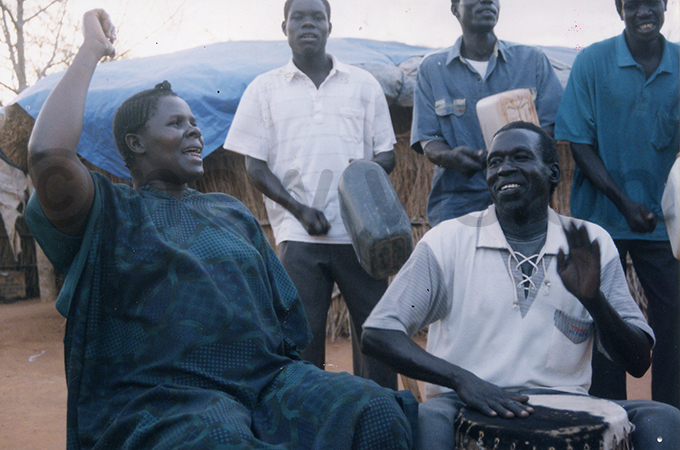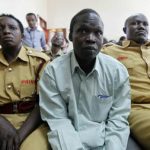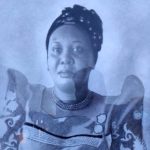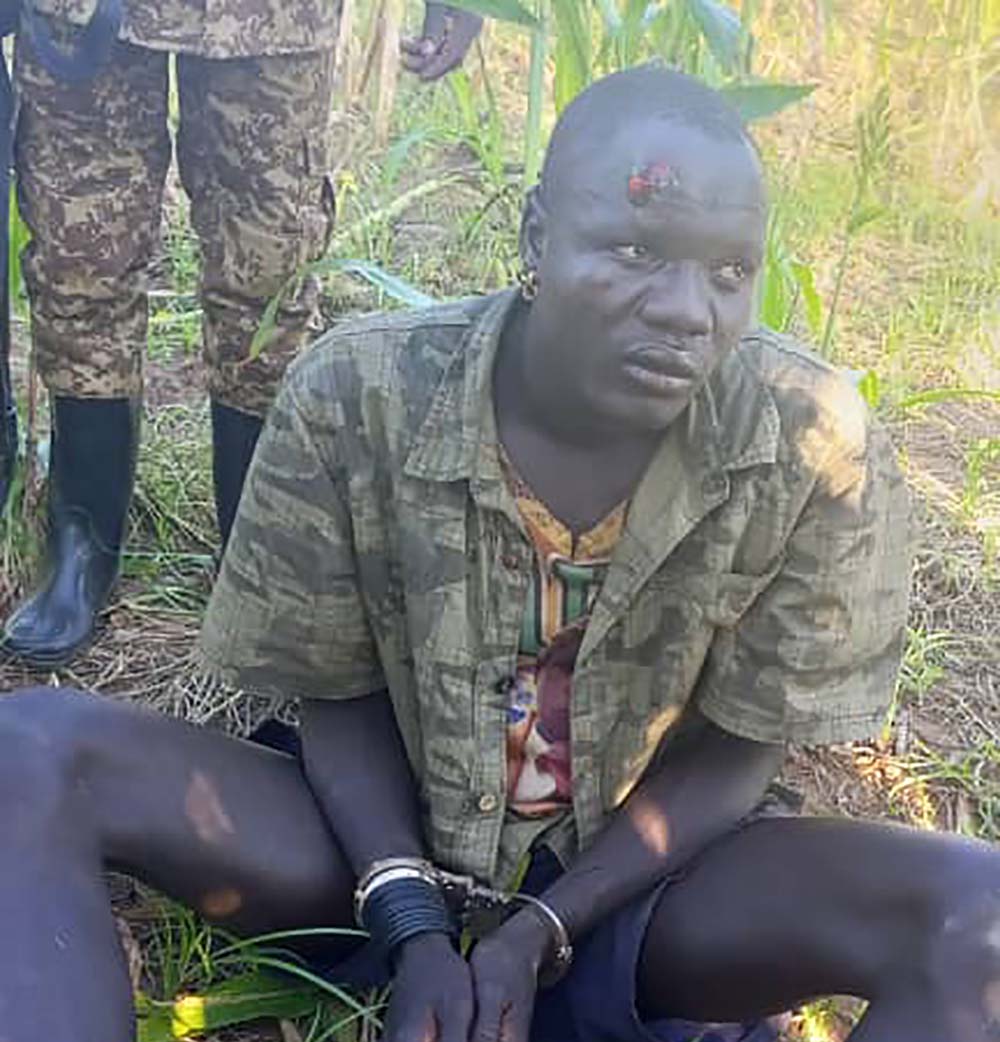(Gulu) – The Gulu High Court Family Division has scheduled Friday, September 6, 2024, to deliver its ruling on the burial dispute of the late Severino Okoya Kibru, the father of former rebel leader Alice Lakwena. The case has drawn significant attention due to the familial conflict over the final resting place of the 99 year old, who passed away on July 13, 2024, after battling organ problems and prostate cancer.
Since Okoya’s death, his body has remained in a cold room for over 50 days as his children have been unable to agree on where he should be buried, leading to a legal battle. The disagreement centers around two potential burial sites, each supported by different members of the family.
Kenneth Kaunda, one of Okoya’s sons, insists that his father should be buried in Latyeng village, Bungatira sub-county in Gulu District. Kaunda argues that this location is his father’s true home, where several relatives, including Okoya’s late wife and daughter, Alice Auma (better known as Lakwena), were also buried.
On the other hand, Doreen Adokorach, the deceased’s eldest daughter, claims that her father had expressed his wish to be buried on another piece of land he owned in Unyama sub-county, also in Gulu District. According to Adokorach, her father was exiled from his home in Bungatira 30 years ago by some of his children and his late wife, due to his involvement in a rebel movement and leadership of a religious cult.
The family dispute reached the High Court, where Deputy Registrar George Obong informed the parties on September 2, 2024, that the ruling on the burial case would be delivered on September 6, 2024. Both sides expressed their willingness to respect the court’s decision on where their father’s remains should be laid to rest.
Alice Lakwena, born Alice Auma in 1956 in Bungatira, a village in northern Uganda, was a spiritual leader and rebel who gained notoriety for leading the Holy Spirit Movement (HSM) during the late 1980s. Her life was marked by her transition from a healer and spirit medium to a military leader, and her influence remains a significant part of Ugandan history.
Early Life and Spiritual Awakening
Alice Auma was born into the Acholi ethnic group in northern Uganda. From an early age, she was involved in traditional spiritual practices, and in her twenties, she became known as a spirit medium. Around 1985, during a period of political turmoil in Uganda, Alice claimed to be possessed by a spirit named “Lakwena,” which means “messenger” in the Acholi language. She believed this spirit had sent her on a divine mission to purify Uganda and cleanse the country of sin through a holy war. Thus, she took on the name “Alice Lakwena.”
The Holy Spirit Movement
In 1986, Uganda’s political landscape was in chaos following years of civil conflict. The newly established government of Yoweri Museveni was struggling to gain control over the entire country, especially in the north, where resistance was strong. It was in this context that Alice Lakwena launched the Holy Spirit Movement, a rebel group that claimed divine protection and guidance.
Lakwena’s forces were characterized by their use of spiritual rituals and unconventional warfare. Her followers, often armed with rudimentary weapons, believed that they were protected by holy oil and other rituals that would make them invincible to bullets. Her movement attracted thousands of followers, primarily from the Acholi people, who were disillusioned with the government’s rule and were seeking hope in a period of great suffering.
Rise and Fall of the Holy Spirit Movement
Initially, the Holy Spirit Movement gained some success, capturing towns and defeating government forces in several engagements. Lakwena’s charisma and the deep spiritual beliefs of her followers drove the movement’s rapid growth. However, the government’s superior military capabilities eventually overpowered her forces.
The movement reached its peak in 1987 when Lakwena led her followers toward the Ugandan capital, Kampala, with the goal of overthrowing Museveni’s government. However, her army was decisively defeated in Jinja, just 80 kilometers from Kampala. Following this defeat, the Holy Spirit Movement quickly disintegrated, and Lakwena fled to neighboring Kenya.
Exile and Death
Alice Lakwena lived the remainder of her life in a refugee camp in Kenya, where she was largely forgotten by the international community. Despite the end of her rebellion, her legacy continued to influence the region. The remnants of her movement later evolved into the Lord’s Resistance Army (LRA), led by Joseph Kony, who claimed to be her cousin and spiritual successor. The LRA became infamous for its brutal tactics, including the abduction of children and widespread violence, which plagued Uganda and surrounding countries for decades.
Lakwena died on January 17, 2007, in the Ifo Refugee Camp in northeastern Kenya. She passed away from an unknown illness, far from the country where she had once led a powerful spiritual and military movement.
Legacy
Alice Lakwena remains a controversial figure in Ugandan history. To some, she was a misguided rebel leader who brought suffering to her people through a doomed and irrational campaign. To others, she was a symbol of resistance against government oppression, and her movement is seen as an expression of the deep spiritual and cultural values of the Acholi people. Despite the controversy, her influence on the region’s history is undeniable, particularly in the way her movement laid the groundwork for the long and tragic conflict involving the LRA.




















